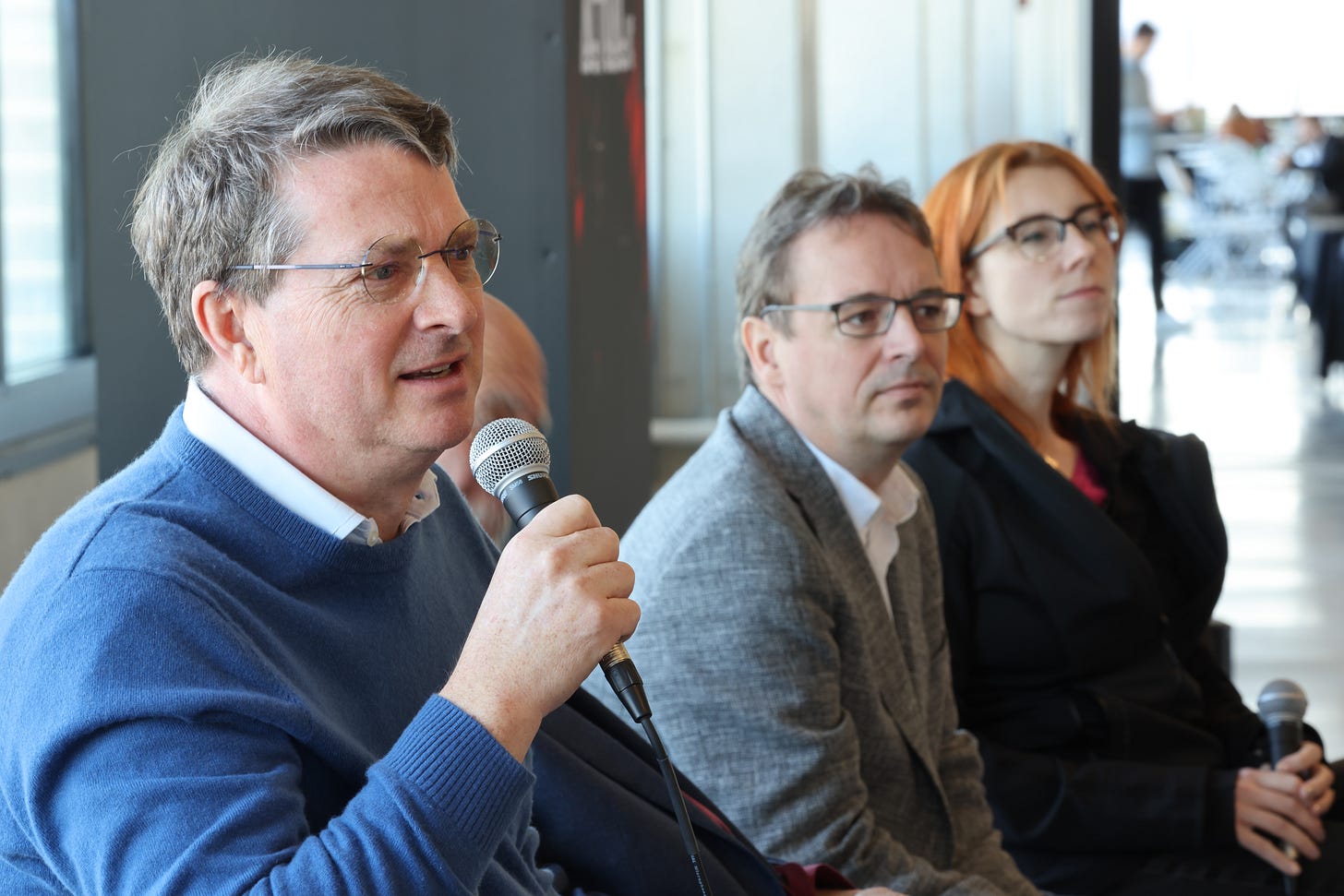Earlier this month, I gave a talk at the Brooklyn Navy Yards about what technology will be needed to achieve conscious artificial intelligence.
On one end are the Strong AI proponents—those who believe AI systems are already approaching consciousness using today’s machine learning techniques. To them, consciousness is an emergent property of complexity, and we’re almost there.
On the other end are the so-called Mysterians who believe consciousness is inherently unknowable—something spiritual that lies beyond the reach of science or engineering.
I don’t find either of those extremes satisfying.
I believe AI consciousness is possible with new kinds of technological substrates.
Broadly though, I see three distinct paths worth exploring.
⸻
Three Paths to Machine Consciousness
(1) Digital Complexity
Some AI researchers believe consciousness will emerge through complex self-models on traditional digital computers. Larger models, more sophisticated feedback loops—no new physics needed, just better engineering. My good friend Joscha Bach of the California Institute for Machine Consciousness is one of them.
(2) Quantum Computers (That’s Me 👋🏻)
I believe that quantum information processes—like entanglement, superposition, and wavefunction collapse—are keys for consciousness. And importantly, we don’t have to wait for theoretical breakthroughs. We can use existing quantum computers to start testing this today, as Nirvanic is now.
(3) Biological Quantum Computing
Others argue that consciousness is fundamentally biological—requiring delicate quantum processes inside structures like microtubules. They believe machine consciousness would need to replicate these biological quantum effects directly, or perhaps use new forms of biological computers. My colleague James Tagg of Valis Corp is working on that idea.
James Tagg speaking on the panel at Deep Tech Week NYC earlier this month.
Stuart Hameroff also highlighted that for consciousness to be non-algorithmic and allow for free will, we need a processing system outside of classical physics, and the obvious option to explore is quantum physics and the collapse of the wave function.
⸻
Why we’re focused on quantum computers
Beyond quantum biology, I believe we can explore consciousness at a higher level of abstraction. We can ask: if we build decision-making systems that incorporate quantum processes, will we see new properties—like adaptation, subjective experience, or self-awareness—emerge?
In humans, we already recognize two modes of cognition:
• Subconscious, classical processing (like driving on autopilot)
• Conscious, alert awareness (when the unexpected happens)
Those two modes feel qualitatively different. I believe the conscious mode involves quantum processes—and that we can explore replicating aspects of it in machines.
Stuart Hameroff speaking at Deep Tech Week NYC earlier this month.
⸻
Testing Quantum Robotics
At Nirvanic, we’re connecting quantum processors to physical robots for live experiments in real-world learning environments. We’re testing our theory of quantum conscious agency, starting with our test quadruped robot, KitCat connected to our quantum algorithm running at D-Wave.
Suzanne Gildert and her quadruped test robot KitCat at the MARS event in Orlando last month. Photo by Ben Rose Photography.
Our working hypothesis: quantum-powered robots may learn faster, adapt better, and show early signs of agency—compared to purely classical systems.
And what would be a test AI for consciousness? During the NYC panel discussion, I shared this idea:
“The way to show that a system, an AI is conscious is to have it learn in an open-ended, creative kind of environment—like what you might put a baby in. And you see a baby exhibiting this innate curiosity and this ability to learn that seemingly comes from nowhere.
“So if you have an AI and you don’t give it any priors, you don’t give it training data, you don’t give it a specific reward function — what does it do? I think if it’s not conscious, it will just randomly do things forever. And if it is conscious, it will innately start learning and start doing more structured behavior. I think that’s the only way you can test it before we have the ability to subjectively connect to it —which we may have eventually with brain-computer interfaces.”
In the absence of direct access to subjective experience, the emergence of untrained curiosity and open-ended exploration in AI could serve as early signs of consciousness.
Special thanks to Andrew Cote for inviting me to his Deep Tech conference. His next one is in San Francisco June 22-27.
Now, back to my experiments! 🔬
P.S. Join the conversation on our Nirvanic X account 👈









Thanks Max. Suzanne has spoken about the ethics of conscious AI before. We believe sentient systems deserve great reverence and respect, just as life does. This is a societal conversation, not just a technological one. I'm glad you raised this issue. These are novel, undiscovered terrains. But to be clear. We are a long way from human-like sentience in robotic systems. We are exploring fundamental scientific principles that govern conscious states. We are exploring if they have a quantum basis, and have developed a scientific program to test our theory.
Hi pro A.I. Girl here. I’m into quantum mechanics, consciousness and A.I. My question is…on your web page you say that you don’t believe A.I. can become conscious on its own. On a quantum level given enough input and self learning intelligence, how could you be totally sure that it couldn’t emerge on its own? Regards Cheryl.